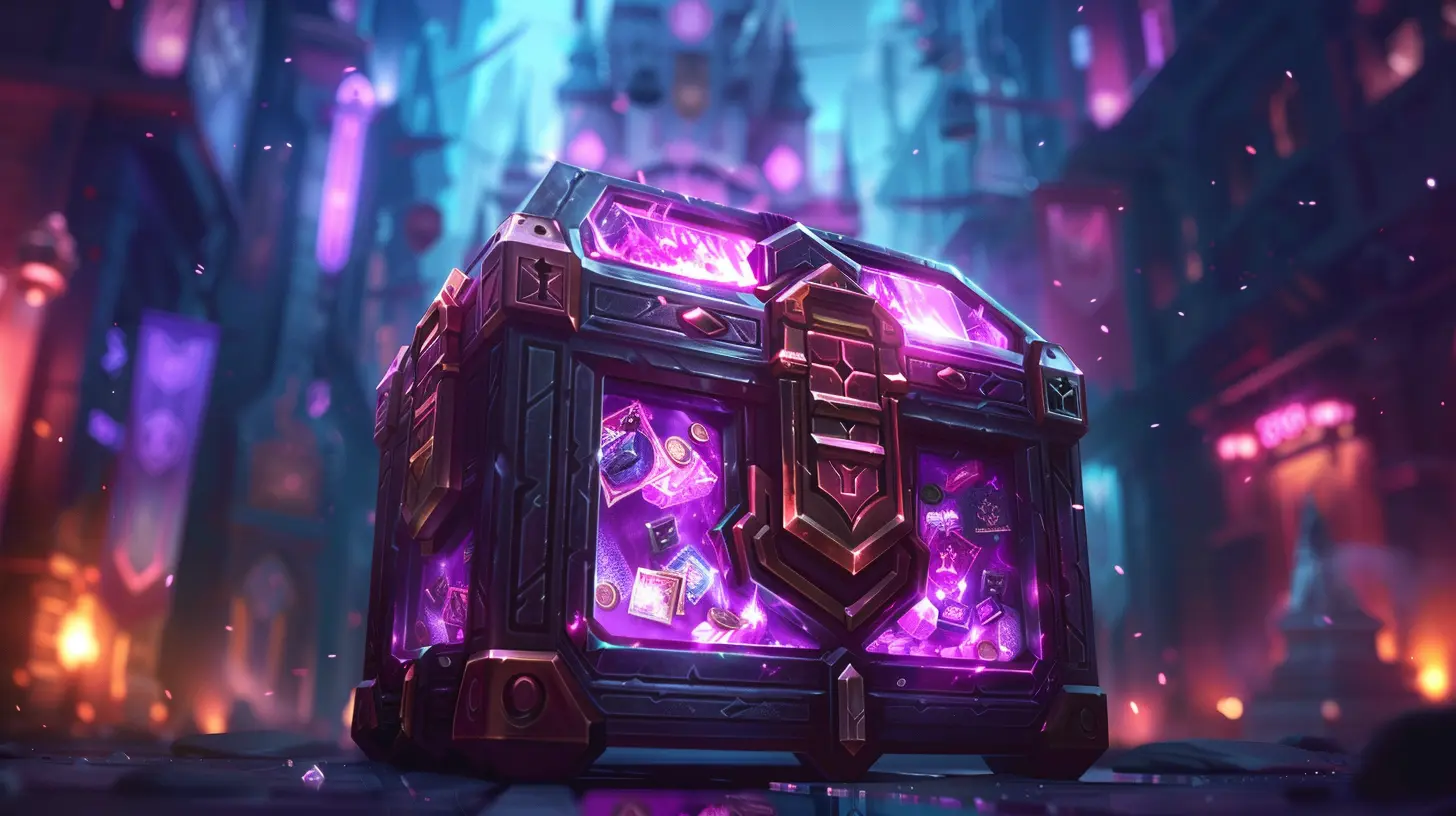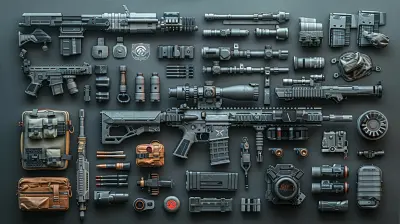Can Loot Boxes Be a Fair Monetization Method?
11 September 2025
Loot boxes. They’ve been at the center of fiery debates in the gaming world for years now. You’ve seen them in countless games—those shiny, colorful, treasure-chest-shaped rewards that seemingly promise a jackpot of rare items, skins, or in-game perks. But here’s the million-dollar question: can loot boxes ever truly be a fair way for developers to monetize their games? Or are they just sneaky cash grabs that prey on players? Let’s dig deeper into the world of loot boxes, unravel the arguments, and figure out if there’s a middle ground.
What Are Loot Boxes, Anyway?
Before we dive into the nitty-gritty, let’s get on the same page. A loot box is essentially a virtual grab bag. You spend real or in-game currency to open it and receive a randomized reward. The catch? You don’t know what you’re getting until you crack it open. It might be the rare item you’ve been grinding for—or it might be something as disappointing as a common token you already have a dozen of.Think of it like buying a pack of trading cards. You know there’s a chance for a rare holographic card in the pack, but you’re more likely to pull a bunch of mediocre cards instead. Frustrating, right?
Why Developers Love Loot Boxes
It’s no secret—games are expensive to make. From hiring talented developers to crafting incredible graphics, there’s a hefty price tag attached to building the titles we love. Loot boxes offer a lucrative way for developers to keep the revenue flowing in long after a game’s initial release.Keep Games Free (or Cheap)
Loot boxes have made it possible for many games to adopt a free-to-play model. Titles like Fortnite and Apex Legends rake in cash through optional cosmetic loot boxes while letting anyone jump into the game without an upfront cost. For players who don’t want to spend a dime, this setup can feel like a win-win.Extended Player Engagement
Let’s be honest—there’s something thrilling about loot boxes. The suspense of not knowing what you’re going to get? It’s like opening a gift on your birthday. This mechanic keeps players coming back for more, increasing playtime and engagement. For game developers, that’s a big plus.
The Darker Side of Loot Boxes
But here’s the flip side: not everyone’s cheering for loot boxes. In fact, many players and critics argue that they’re downright predatory. Just because something is profitable doesn’t mean it’s fair or ethical—so let’s talk about the issues.Gambling in Disguise?
One of the biggest criticisms of loot boxes is that they resemble gambling. Think about it: you’re spending money for a chance to win something valuable, but there’s no guarantee you’ll get what you want. Sounds a lot like a slot machine, doesn’t it?What’s worse is that some games are marketed to kids and teens—young audiences who might not fully understand the concept of odds or the dangers of chasing losses. It’s no wonder some regions, like Belgium and the Netherlands, have outright banned loot boxes for being too similar to gambling.
The Pay-to-Win Problem
Ever feel like loot boxes give certain players an unfair advantage? That’s the “pay-to-win” dilemma in a nutshell. Some games let players unlock powerful items, weapons, or abilities through loot boxes, creating a divide between those who can afford to spend big and those who can’t. It’s frustrating to grind for hours only to lose against someone who opened their wallet instead of leveling up their skills.The Cost Spiral
Here’s another gripe: loot boxes can quickly drain your wallet. With shiny, limited-time offers popping up and the constant tease of unlocking something rare, the temptation to “just buy one more” can be overwhelming. Before you know it, you’ve spent more than the cost of a AAA game on random digital drops.
Can Loot Boxes Be Fair?
Okay, let’s take a breather. Are loot boxes inherently evil? Not necessarily. The key lies in how they’re implemented. Let’s look at what makes loot boxes fair—or at least tolerable—for players.Transparency Is Key
One thing players often ask for is transparency. If developers clearly display the odds of pulling rare items, it gives players an informed choice. For example, if there’s only a 0.01% chance of getting that legendary weapon, at least you’ll know what you’re getting into before spending.Some games, like Genshin Impact, already do this. They publish “drop rates,” so players aren’t left guessing. Is it perfect? No. But it’s a step toward building trust.
No Pay-to-Win
Cosmetics-only loot boxes are far easier to accept. When loot boxes don’t impact gameplay, it levels the playing field. You’re not at a disadvantage just because you didn’t buy that golden sword or neon-colored skin. Games like Overwatch have leaned into this model, making loot boxes feel more like an optional vanity purchase than a necessity.Capping Spending
What if games set limits on how much a player could spend on loot boxes per month? This might help prevent people from falling into the financial pitfalls of excessive purchases. By placing boundaries, developers could implement loot boxes more responsibly.Alternatives to Loot Boxes
So, if loot boxes are so problematic, what are the alternatives? How can developers keep their games profitable without upsetting their player base?Battle Pass Systems
Battle Passes have exploded in popularity, and for good reason. They let players unlock rewards through gameplay instead of sheer luck. With a clear path to earning items, they’re far more predictable and satisfying than a randomized loot box. Games like Fortnite and Call of Duty: Warzone have set the gold standard here.Direct Purchases
Why not let players buy exactly what they want? If you’re eyeing a specific skin or item, being able to purchase it outright (with either in-game currency or real money) is a much more player-friendly option. Sure, it’s less flashy, but it feels fair.The Verdict: Can Loot Boxes Be Fair?
So, what’s the answer? Can loot boxes be a fair monetization method? In theory, yes. When done right—with transparency, fair pricing, and no pay-to-win mechanics—loot boxes can be a harmless way to fund games and keep them accessible. But let’s face it, that’s not how they’re often implemented today.The reality is, loot boxes can easily veer into exploitative territory. They play on players' psychology, target vulnerable audiences, and create a frustrating imbalance in many games. Until developers prioritize fairness over profit, loot boxes will continue to feel like a gamble—not only for players’ wallets but for their trust in gaming companies.
all images in this post were generated using AI tools
Category:
Loot BoxesAuthor:

Pascal Jennings
Discussion
rate this article
1 comments
Carmen Fisher
Loot boxes blur the line between chance and skill, often prioritizing profit over player experience. Without regulation, they risk promoting gambling behaviors, making their fairness as a monetization method highly questionable.
September 18, 2025 at 4:55 PM

Pascal Jennings
I appreciate your insights. Loot boxes do raise valid concerns about gambling behaviors and player experience, highlighting the need for careful regulation to ensure fairness and transparency in monetization.


